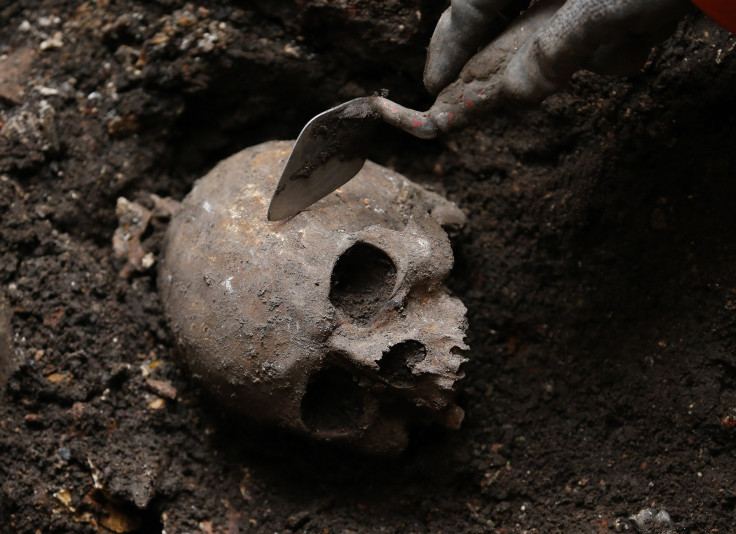The First War Ever? Skeletons Discovered In Kenya Suggest Massacre Some 10,000 Years Ago

A discovery in Kenya may provide new insight into the history of war, suggesting that prehistoric human beings too engaged in ruthless massacres. Bones from more than two dozen individuals, including at least 12 well-preserved skeletons, discovered in a now-dry lagoon on the shore of Lake Turkana, showed individuals with crushed skulls, spear wounds and bounded hands.
The bones date back some 10,000 years, providing the earliest dated evidence of deaths by human conflict, according to the Smithsonian. War is typically thought to have arisen in more complex, sedentary societies. The bodies were scattered by the lake in no clear order, and preserved by sediment, according to scientists who reported the findings in the journal Nature this week.
It may be the first instance of a massacre in an ancient hunter-gatherer society https://t.co/S8L2FaHvXF pic.twitter.com/QygVmfNzZG
— NYT Science (@NYTScience) January 20, 2016
"The injuries suffered by the people of Nataruk—men and women, pregnant or not, young and old—shock for their mercilessness," said Marta Mirazon Lahr of the University of Cambridge, who co-authored the study. She added, however, that "what we see at the prehistoric site of Nataruk is no different from the fights, wars and conquests that shaped so much of our history, and indeed sadly continue to shape our lives.”
The context of the deaths remains unknown. Of 27 individuals discovered, at least eight were male and an equal number were female. The gender of five of the individuals is also unknown. One woman appeared to have been hit by arrows or small spears in the head. She also was beaten in the knee by a club. Another woman, who was pregnant, was killed by a blow to her head. Her hands and feet appeared to have been bound.
The bones were first discovered in 2012. Researchers have been studying the area since 2009, finding remnants of tools, pottery and other items used by hunter-gatherers.
“There’s no other find like it,” Luke A. Glowacki, a researcher in human evolutionary biology at Harvard University , who was not involved with the study, told the New York Times.
© Copyright IBTimes 2024. All rights reserved.






















